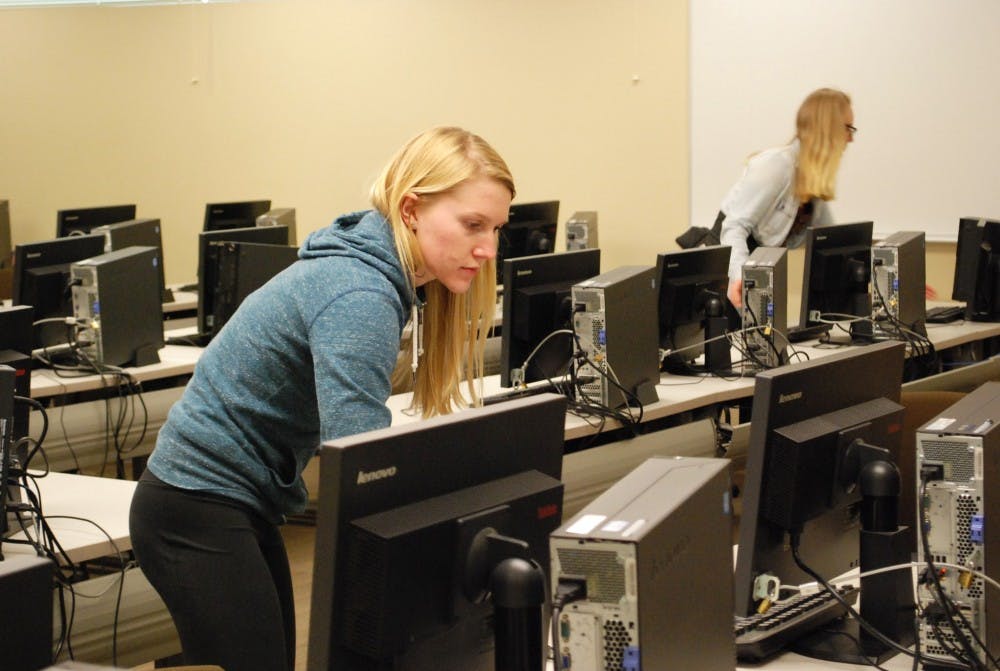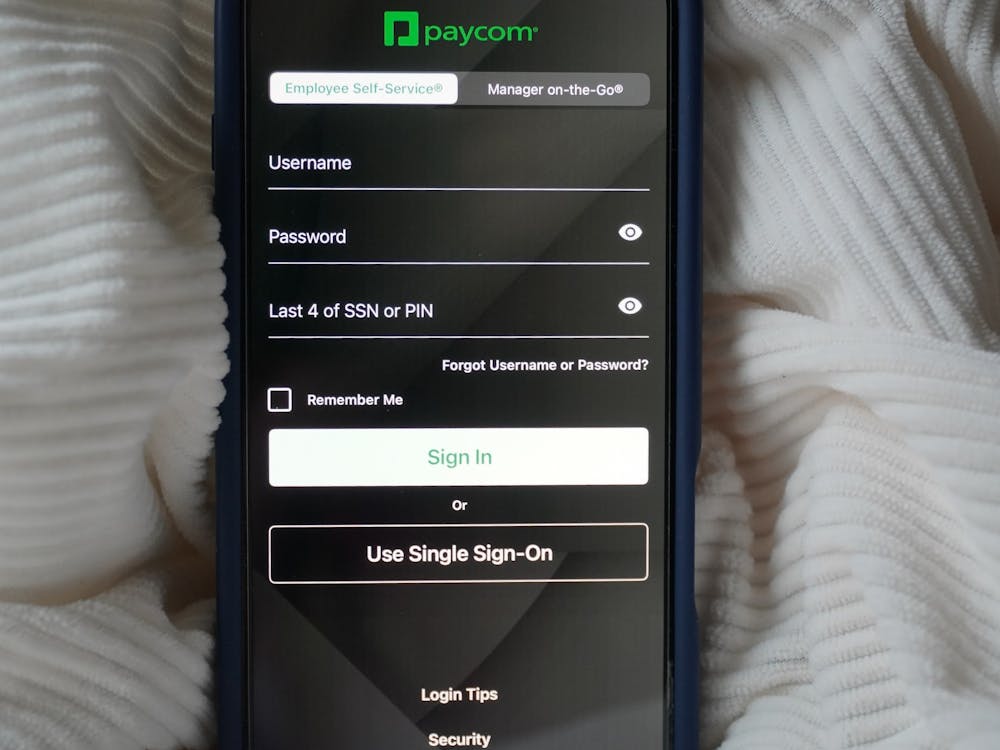Jacob Fuhrer |
In a Buckley Center classroom, the lights are on and the document camera is running, but the doors are closed and there’s no one around. The hallways are empty, and an eery silence permeates throughout the building.
No, this isn’t a post-apocalyptic scene in which hyper-caffeinated, sleep deprived students finally overrun the school and decimate its population. It’s actually just a regular Friday night.
However, it’s a Friday night that members of the College Ecology Club (CEC) would like to change. Friday Night Lights, as CEC is calling the new program, involves a group of volunteers meeting each Friday and turning off lights, computers and equipment in academic buildings across campus in an effort to save energy.
Members of CEC have also been busy off-campus. They visited Salem last Tuesday to meet with legislators to push for the use of cleaner energy in the state.
“We want people to be a little more mindful about the decisions they make and not just do things because it’s convenient,” said CEC President Samantha Wright.
At the first Friday Night Lights on March 27, volunteers shut down over 100 computers, 13 projection cameras, and countless hallway, bathroom and classroom lights.
The program is new to UP, but it’s been ongoing at other universities nationwide.
Environmental science professor Ted Eckmann came up with idea while teaching at Bowling Green State University. If the statistics are any indication, the program was a great success. Eckmann says the school saved around $15,000 each year in lowered electricity costs.
Bowling Green is a larger university, but UP can benefit from the savings as well.
“As some students said, that's their tuition paying UP's electricity bill, so I think students should have a say in whether or not UP leaves lights, computers, and monitors on all weekend in empty rooms,” Eckmann said in an email.
CEC Secretary Abigail Maddigan, a sophomore biology major with an environmental science minor, recalled hearing Eckmann give a talk to the club where he explained Friday Night Lights.
“I think most of the club officers said, ‘That sounds like a lot of fun,’” Maddigan said. “It took about a month and then we were like ‘Let’s do this!’”
Maddigan said around ten people volunteered for the past two Friday Night Lights, and the club plans to make it a weekly event.
“In the past two weeks, I’ve been so extremely happy,” Wright said. “It feels so good to look back at Buckley and see that it’s completely dark. . . that no energy is going to go wasted.”
Some members of CEC are working on a much larger scale to reduce the environmental impact of energy consumption statewide.
Junior environmental science major and CEC Treasurer Brooke Holmes, traveled to the Salem last Tuesday as part of her internship with the Sierra Club to lobby for cleaner energy in Oregon.
Holmes, along with junior Luke Kemp and freshman Summer Grandy, met with Tina Kotek, Oregon’s speaker of the house. The conversation centered on a piece of proposed legislation that would urge for adoption of cleaner energy.
According to Holmes, one third of Oregon’s energy comes indirectly from coal burned in other states. The bill would ask Oregon to shift that final third of coal-backed energy to a new energy mix that is 90 percent cleaner.
Holmes says the meeting with Kotek was “marginally successful.”
“We’ve got backing from a lot of representatives from Oregon in the Senate and House, but we need more,” Holmes said.
Holmes says she believes it will take a lot of governmental policy to finally put an end to the use of coal and to promote better environmental practices.
On a more local scale, CEC plans to continue raising awareness about issues through a screening of Mission Blue, a documentary about protecting the Earth’s oceans. CEC will also have a booth outside the library on Earth Day, April 22, to engage with students and award prizes for pledging certain environmental actions and writing letters to representatives.
“I am encouraged by the interest UP’s students, faculty, and staff have shown in becoming more sustainable,” Eckmann said. “We can do it if we’re collectively ready to make sacrifices, and if we apply courage and creativity to change our bad habits into truly sustainable solutions.”
Jacob Fuhrer is a reporter for The Beacon. He can be reached at fuhrer17@up.edu or on twitter @jacobfuhrer.








